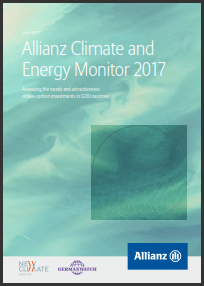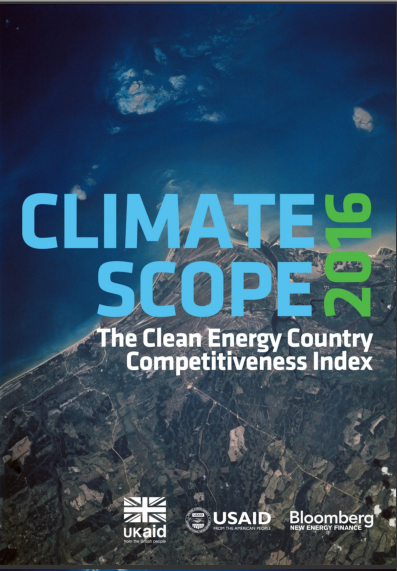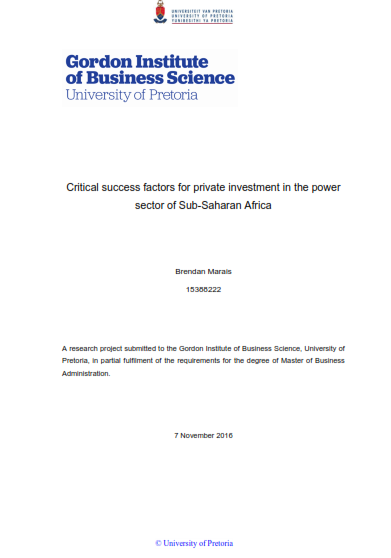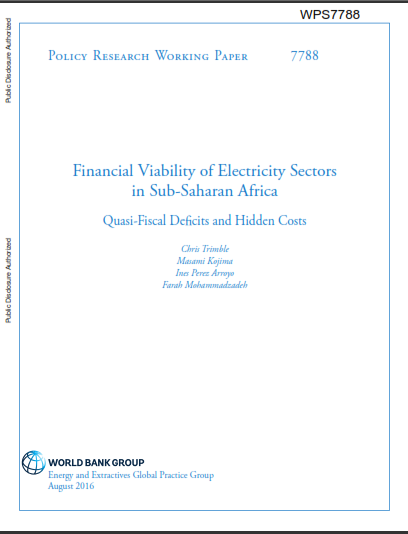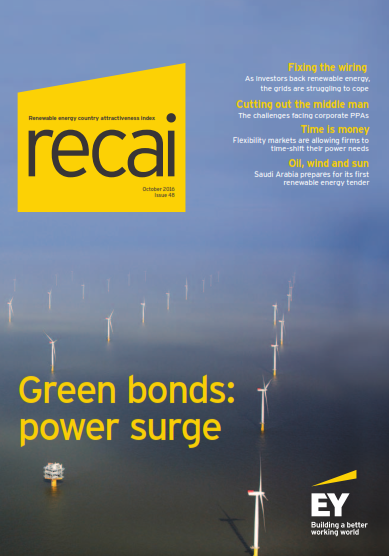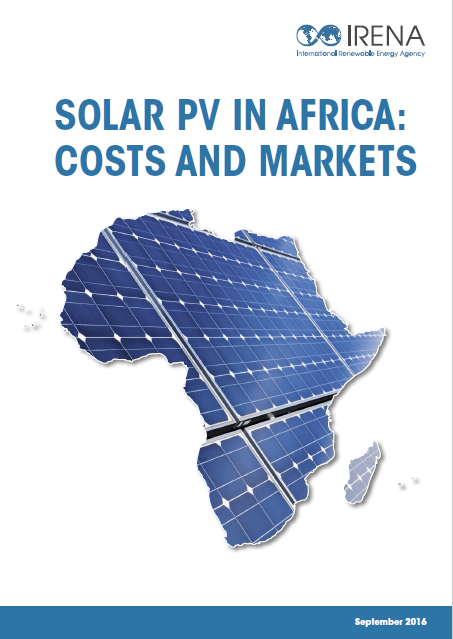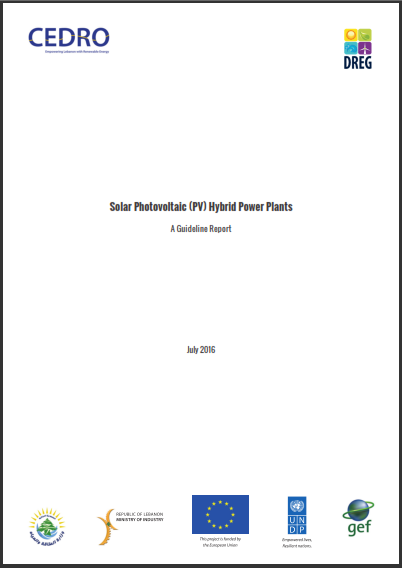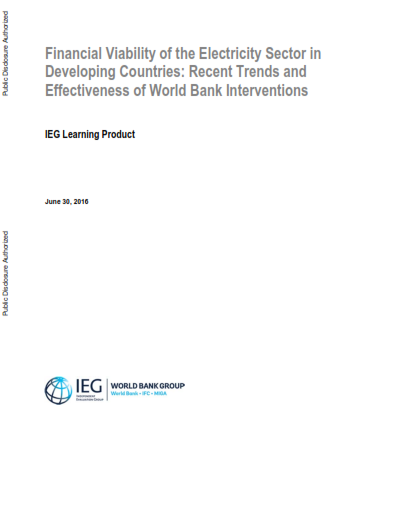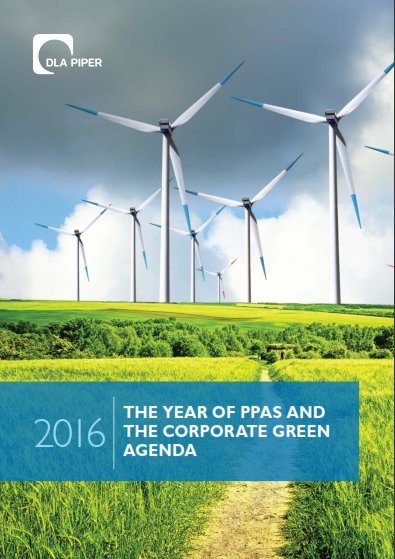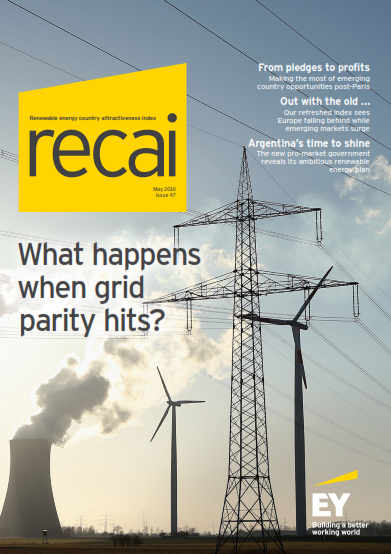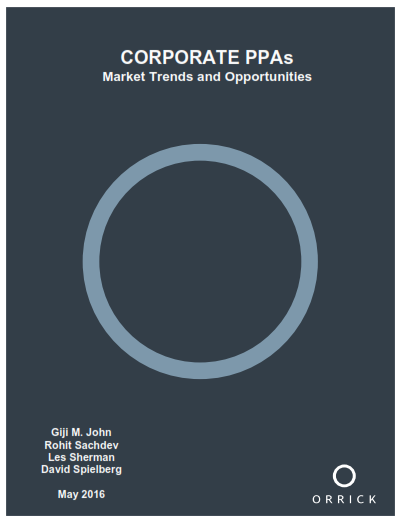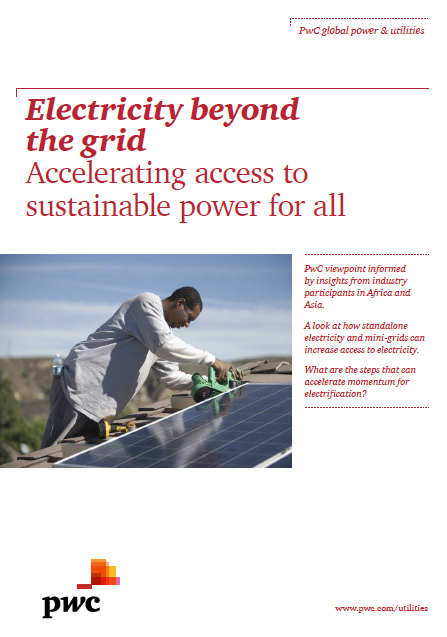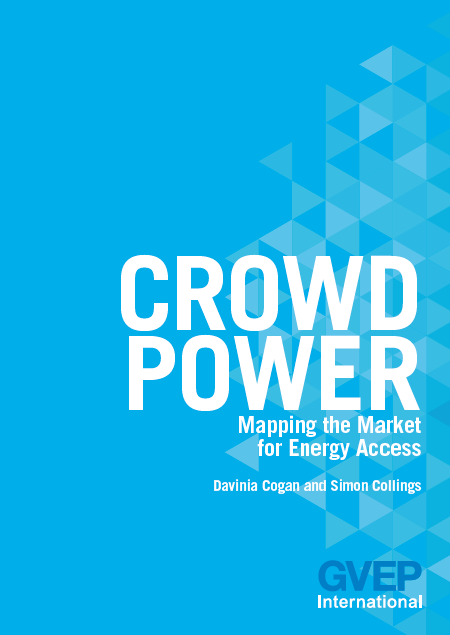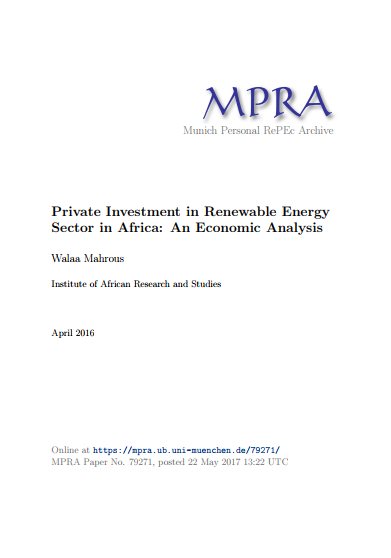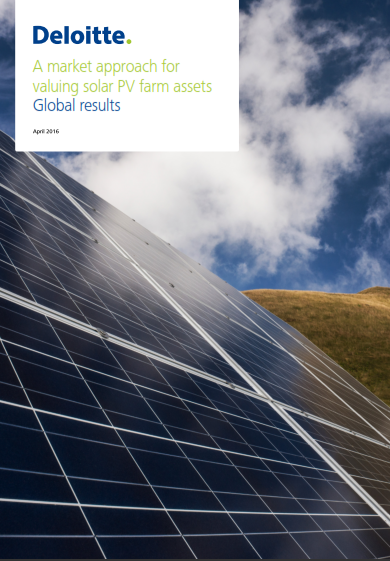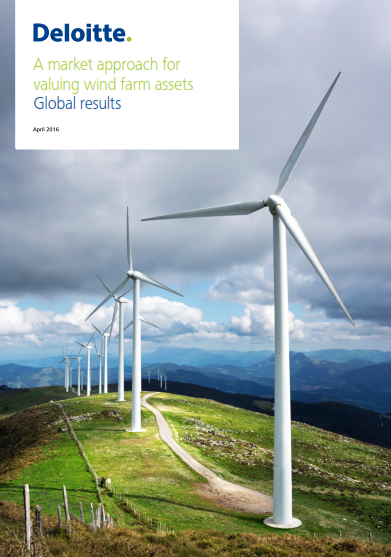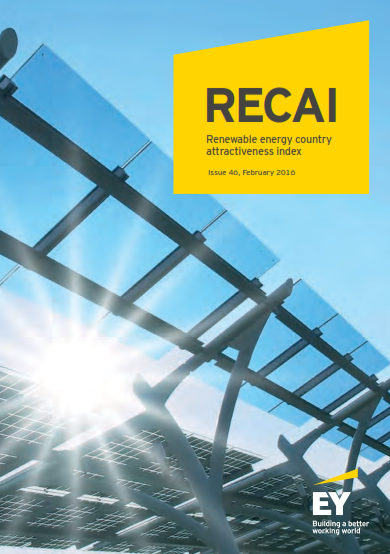We post here the relevant reports for the power sector in Africa. Feel free to join our efforts and share us any other you may have found. We'd be glad to add them to the list. Just sent an email to This email address is being protected from spambots. You need JavaScript enabled to view it.
Browse by Region:
Publication date: 2017
Author: Allianz Climate Solutions
Description: The Allianz Climate and Energy Monitor ranks G20 member states on their current attractiveness as potential destinations for investments in low-carbon electricity infrastructure. It further considers their current and future investment needs in line with a trajectory compatible with the 2°C/1.5°C temperature limits of the Paris Agreement.
Download Report >>
Publication date: 2016, December
Author: ECREEE
Description: "The report “Mapping and Assessment of Existing Clean Energy Mini-Grid Experiences in West Africa” was released at the High-level Workshop on Energy Access in West Africa in Abidjan, Côte d’Ivoire. Among other important issues discussed, the report provides orientation regarding financial schemes, management models and technology to face current energy challenges.
The report aims at closing the wide gap in terms of information and analysis of field experiences. The report also provides orientation on the right financial schemes, management models and technology which are key elements in having sustainable solutions. The extracted information is to be used to build the capacities of policy and decision makers, project promoters and investors to improve the enabling environment in order to accelerate CEMG investments in ECOWAS member states."
Download Report >>
Visit Website >>
Publication date: 2016, December
Author: Bloomberg
Description: Climatescope, an assessment of clean energy market conditions and opportunities in 58 emerging nations in South America, Africa, the Mideast, and Asia. This third global release of the project takes into account the extraordinary 12 months of clean energy investment, construction, and policymaking of 2015. It also contextualizes that progress against activity in other, wealthier nations. As in years past, Climatescope scores countries based on their levels of activity and the environments they create to attract further clean energy investment.
Download Report >>
Publication date: 2016, November
Author: University of Pretoria
Description: The research has conclusively defined the critical success factors for private investment in the power sector of Sub-Saharan Africa and formulated it into a practical framework. Consensus about these critical success factors suggested that investment performance and participation would improve if these factors are adhered to.
Download Report >>
Visit Website >>
Publication date: 2016, October
Author: RES4Africa
Description: This position paper by RES4Africa contains 8 proposals on what it takes to deploy Renewable Energy in Eastern Africa
Download Report >>
Visit Website >>
Publication date: 2016, October
Author: EY
Description: If evidence were needed of the appetite investors currently have for renewable energy assets, it’ s to be found in the green bond market. Issuance is soaring this year, with green bond sales typically several times oversubscribed by investors hungry for yields from environmentally friendly assets.
Download Report >>
Publication date: 2016, September
Author: IRENA
Description: Cost reduction opportunities for solar home systems exist for the core hardware components of modules and batteries, but also for the balance of system, including all non-hardware, costs. For minigrids, the challenges are more varied given the multi-stakeholder engagement required, and project development costs dominate the total cost reduction opportunities.
Download Report >>
Publication date: 2016, August
Author: World Bank
Description: This paper studies the financial viability of electricity sectors in 39 countries in Sub-Saharan Africa using an approach similar to that in an earlier study, the Africa Infrastructure Country Diagnostic. The quasi-fiscal deficit in each country is calculated under two scenarios: existing utility performance and benchmark utility performance.
Download Report >>
Visit Website >>
Publication date: 2016, July
Author: UNDP / CEDRO
Description: Based on Lebanon case, explains the setup of Solar PV / Diesel Generators hybrid power plants.
Download Report >>
Visit Website >>
Publication date: 2016, June
Author: IEG / WB
Description: This Independent Evaluation Group (IEG) Learning Product addresses the effectiveness of World Bank interventions during fiscal years (FY) 2000–15 in supporting client countries for improving the financial performance and long-term viability of their electricity sectors. Like other IEG learning products, this study is a synthesis of evaluation findings, cross-cutting lessons, and good practices from existing IEG evaluations, supplemented with a targeted literature review.
Download Report >>
Visit Website >>
Publication date: 2016, June
Author: DLA Piper
Description: In this short paper, we discuss the rise of the corporate green agenda in the context of the outcomes of the Paris Agreement; increasing interest in renewable energy; and the rise of corporate power purchase agreements (“Corporate PPAs”).
Download Report >>
Publication date: 2016, May
Author: EY
Description: As solar, wind and storage technologies continue their remorseless — if not breathtaking — decline in cost, grid parity is set to wreak havoc on the century-old utility business model.
Download Report >>
Publication date: 2016, May
Author: Orrick
Description: This article provides an overview of (1) contract structures for corporate PPAs, (2) key issues that arise in negotiating corporate PPAs and (3) issues and trends in corporate PPAs in certain individual U.S. markets.
Download Report >>
Visit Website >>
Publication date: 2016, May
Author: pwc
Description: The report forecasts a major transformation of the electricity sector in the period ahead. Angeli Hoekstra, Power & Utility Specialist for PwC Africa, pointed out: ’All or nothing’ approaches that focus primarily on the national grid are increasingly out of step to what is now possible in power technology. Advances in technology are rapidly changing the options available beyond the grid.
Download Report >>
Visit Website >>
Publication date: 2016, May
Author: GVEP International
Description: Crowdfunding for energy access refers to the donation, reward, debt and equity campaigns launched each year by social enterprises, charities and other organisations raising capital for off-grid energy projects. This market is currently very small, with $3.4 million raised for projects in Africa and Asia in 2015. Debt campaigns currently dominate the market, accounting for 75% of funds raised and 95% of campaigns. Much of this is for micro-loans. Recent shifts in solar crowdfunding and the emergence of in-house financing across energy access business models will continue to alter the crowdfunding landscape significantly.
Download Report >>
Publication date: 2016, April
Author: MPRA
Description: African countries still lack a huge amount of energy that is necessary to increase economic growth, alleviate poverty, and sustain economic development (energy insecurity). Public investment in energy sector is still limited to supply household and private sector with their energy needs. Only private investment in renewable energy can play a major role in filling this gap. By applying SWOT analysis, this study illustrates the major threats and weaknesses (challenges) faced by the private investment in renewable energy sector in Africa vis-à-vis the main opportunities and strengths (benefits) these investments can get. Finally, it ends with some suggested solutions that can help at improving conditions of this vital sector and attracting more private investments to it.
Download Report >>
Visit Website >>
Publication date: 2016, April
Author: Deloitte
Description: This paper addresses how and why multiple regression analyses are a good supplement to more comprehensive cash flow models when valuing solar PV farm assets. Our analysis has been performed on the basis of transactions in the solar PV industry. Through our analyses of transactions in the solar PV industry we find that installed capacity, construction capacity and capacity in development pipeline affect the enterprise value of solar PV assets significantly.
Download Report >>
Visit Website >>
Publication date: 2016, April
Author: Deloitte
Description: This paper addresses how and why multiple regression analyses of wind farm transactions are a good supplement to more comprehensive cash flow models when valuing wind farm assets. Our analyses of onshore wind farm transactions have led to the conclusion that installed capacity, capacity under construction and capacity in late stage pipeline affect the enterprise value of transactions significantly. Additionally we have concluded that investors in wind farm assets do not assign any significant value to capacity in early stage pipeline. Our analysis of offshore wind transactions leads to similar results. However, not surprisingly, we see more value in each stage in offshore projects.
Download Report >>
Visit Website >>
Publication date: 2016, February
Author: EY
Description: The unrelenting march toward cost-effective subsidy-free energy is putting ever greater pressure on utilities, challenger businesses and investors to redefine how we generate and consume energy in the years ahead.
Download Report >>
Publication date: 2016, January
Author: Overseas Development Institute
Description: To understand the impacts of many different solar household systems it is useful to categorise them. Categorisation can be based on the technical specifications of the systems and on the services they provide, or both of these factors.
Download Report >>





